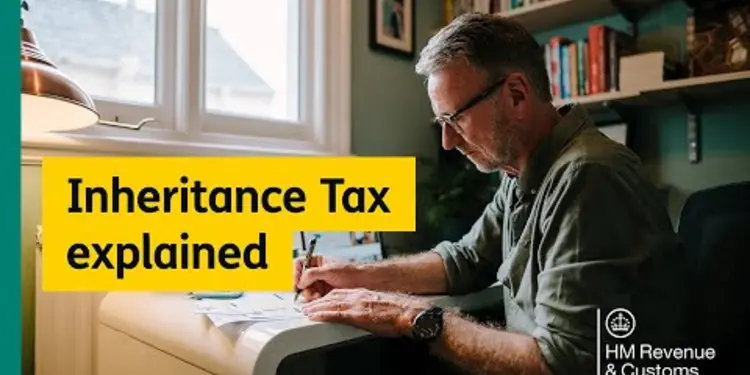
Find Help
More Items From Ergsy search
-

What is the Wealth Tax in the UK?
Relevance: 100%
-

What is the wealth tax in the UK?
Relevance: 100%
-

What is a Wealth Tax?
Relevance: 100%
-

What is the objective of a wealth tax?
Relevance: 96%
-

Would a wealth tax replace other taxes in the UK?
Relevance: 95%
-

Could a wealth tax encourage tax avoidance?
Relevance: 95%
-

Can a wealth tax be levied annually?
Relevance: 92%
-

How is a wealth tax typically calculated?
Relevance: 92%
-

Has the UK ever had a wealth tax?
Relevance: 92%
-

Why doesn't the UK have a wealth tax?
Relevance: 92%
-

Who is typically subject to a wealth tax?
Relevance: 92%
-

What arguments are made for a wealth tax in the UK?
Relevance: 92%
-

What are the challenges of implementing a wealth tax?
Relevance: 91%
-

How does a wealth tax differ from an income tax?
Relevance: 91%
-

What are the administrative costs of a wealth tax?
Relevance: 91%
-

Are there any countries currently implementing a wealth tax?
Relevance: 90%
-

What are common arguments in favor of a wealth tax?
Relevance: 90%
-

Can a wealth tax impact economic behavior?
Relevance: 89%
-

How do economists view the impact of wealth taxes?
Relevance: 89%
-

How might a wealth tax impact inequality in the UK?
Relevance: 89%
-

How do other countries implement a wealth tax?
Relevance: 89%
-

Could a wealth tax affect economic growth in the UK?
Relevance: 89%
-

Is real estate included in wealth tax calculations?
Relevance: 89%
-

Would a wealth tax apply to foreign assets?
Relevance: 88%
-

Has any political party in the UK supported a wealth tax?
Relevance: 87%
-

How might a wealth tax affect wealthy individuals?
Relevance: 86%
-

How do governments ensure compliance with wealth tax laws?
Relevance: 86%
-

How does council tax relate to wealth in the UK?
Relevance: 81%
-

What taxes in the UK target wealth?
Relevance: 67%
-

Do wealth taxes differ between countries?
Relevance: 65%
-

What are common criticisms of a wealth tax?
Relevance: 64%
-

Are there alternatives to a wealth tax for addressing inequality?
Relevance: 64%
-

What exemptions are commonly associated with wealth taxes?
Relevance: 62%
-

Do public opinion polls support a wealth tax in the UK?
Relevance: 61%
-

What types of assets are typically subject to a wealth tax?
Relevance: 59%
-

Has the idea of a wealth tax been discussed in political debates?
Relevance: 57%
-

Is there a proposal for a wealth tax in the UK?
Relevance: 49%
-

Are there professional advisors for inheritance tax planning?
Relevance: 47%
-

What is Inheritance Tax?
Relevance: 45%
-

Is there a difference between inheritance tax and estate tax?
Relevance: 44%
Introduction to Wealth Tax
The concept of a wealth tax has been gaining traction in the UK as policymakers and economists grapple with persistent economic inequality. A wealth tax is a levy on the total value of personal assets, including property, cash, investments, and business ownership, over a certain threshold. Proponents argue that such a tax could address discrepancies in wealth distribution and provide valuable revenue for public services.
Addressing Economic Inequality
One of the primary arguments for implementing a wealth tax in the UK is its potential to reduce economic inequality. The wealth gap between the richest and the rest of the population has been widening over the years. By targeting the assets of the very wealthy, a wealth tax can help redistribute resources more equitably across society. This redistribution could potentially improve social mobility and provide more opportunities for individuals from lower-income backgrounds to succeed.
Generating Public Revenue
Another compelling argument for a wealth tax is its potential to generate significant public revenue. As the UK faces financial challenges, such as funding the National Health Service (NHS), public infrastructure, and education, additional revenue streams are crucial. A wealth tax could provide the necessary funds to support these essential public services without placing additional financial burdens on low and middle-income earners. This revenue could also contribute to reducing the national deficit and improving economic stability.
Encouraging Efficient Capital Allocation
Proponents of a wealth tax argue that it could encourage more efficient allocation of resources within the economy. By imposing a cost on holding excessive wealth, individuals may be incentivized to invest in productive ventures rather than hoarding wealth. This reallocation of resources could stimulate economic growth, enhance innovation, and provide funding for small businesses and entrepreneurs. In the long term, this could lead to a more dynamic and resilient economy.
Challenges and Considerations
While there are strong arguments in favor of a wealth tax, it is also important to consider potential challenges. Critics argue that a wealth tax might lead to capital flight, where individuals move their assets abroad to avoid taxation. This could undermine the effectiveness of the tax and lead to reduced economic activity within the country. Additionally, accurately assessing wealth can be complex, especially for assets that are not easily valued, such as art or privately held businesses.
Conclusion
In conclusion, the arguments for a wealth tax in the UK center around reducing economic inequality, generating public revenue, and encouraging more efficient use of capital. While there are challenges to implementing such a tax, its potential benefits make it a topic worthy of consideration for policymakers seeking to create a fairer and more sustainable economic system.
Frequently Asked Questions
What is a wealth tax?
A wealth tax is a tax levied on the net worth or total wealth of an individual, including their assets such as properties, stocks, and bonds.
Why do some people argue for a wealth tax in the UK?
Proponents argue that a wealth tax could reduce economic inequality, generate revenue for public services, and ensure the wealthy contribute fairly to society.
How could a wealth tax address economic inequality?
A wealth tax could redistribute wealth and reduce the growing gap between the richest and poorest in society, thereby addressing economic inequality.
What revenue benefits could a wealth tax bring?
A wealth tax could generate significant revenue for the government, which could be used to fund public services, such as healthcare and education, reducing austerity measures.
How could a wealth tax ensure fairness in the tax system?
It could ensure that those with the greatest financial means contribute a fairer share of their wealth compared to those with lower incomes.
Can a wealth tax stimulate economic growth?
Supporters argue that by redistributing wealth, a wealth tax can lead to increased consumption and investment in the economy, potentially stimulating growth.
What is the public opinion on wealth tax in the UK?
Polls have shown varying levels of support for a wealth tax, with some segments of the public supporting it as a means to address inequality and others expressing concerns over its implementation.
Could a wealth tax reduce tax avoidance?
Advocates claim a well-designed wealth tax can close loopholes that allow the wealthy to evade other forms of taxation, thereby reducing overall tax avoidance.
How might a wealth tax affect philanthropy?
There's a debate on this issue; some argue it could reduce charitable giving, while others suggest it may encourage more targeted philanthropy.
What challenges exist in implementing a wealth tax?
Implementation challenges include accurately assessing wealth, avoiding capital flight, and ensuring compliance without overly complex regulations.
How could a wealth tax be designed to avoid harming the economy?
A wealth tax could have exemptions or tiers to avoid negative impacts on the economy, targeting only the very wealthy and not affecting small businesses or investments.
Is there precedence for wealth taxes in other countries?
Yes, some countries have implemented wealth taxes with varying degrees of success, which provides lessons on potential pitfalls and benefits.
What impact could a wealth tax have on investment and savings?
Critics argue it might discourage savings and investment, but proponents believe it could lead to more productive allocation of resources.
Could a wealth tax replace other forms of taxation?
Some argue it could complement existing taxes rather than replace them, or allow for a reduction in taxes on income for lower earners.
How might a wealth tax affect housing markets?
A tax on real estate wealth could impact housing markets, potentially discouraging speculation and stabilizing prices.
What are moral arguments for a wealth tax?
Some argue that it is morally right for those with more resources to contribute more towards the welfare of society.
How could a wealth tax impact the distribution of political power?
By reducing concentrated wealth, a wealth tax might also reduce the undue political influence that often comes with it.
What potential legal challenges could a wealth tax face?
There could be challenges regarding its constitutionality, valuation disputes, and compliance with international tax agreements.
How might a wealth tax be structured to protect vulnerable populations?
Exemptions or thresholds could be set to ensure middle-class families and vulnerable populations are not unfairly burdened.
What lessons can the UK learn from other countries with wealth taxes?
The UK can learn from countries that have successfully implemented wealth taxes and those that have abandoned them due to practical challenges.
Useful Links
This website offers general information and is not a substitute for professional advice.
Always seek guidance from qualified professionals.
If you have any medical concerns or need urgent help, contact a healthcare professional or emergency services immediately.
Some of this content was generated with AI assistance. We’ve done our best to keep it accurate, helpful, and human-friendly.
- Ergsy carfully checks the information in the videos we provide here.
- Videos shown by Youtube after a video has completed, have NOT been reviewed by ERGSY.
- To view, click the arrow in centre of video.
- Most of the videos you find here will have subtitles and/or closed captions available.
- You may need to turn these on, and choose your preferred language.
- Go to the video you'd like to watch.
- If closed captions (CC) are available, settings will be visible on the bottom right of the video player.
- To turn on Captions, click settings .
- To turn off Captions, click settings again.
More Items From Ergsy search
-

What is the Wealth Tax in the UK?
Relevance: 100%
-

What is the wealth tax in the UK?
Relevance: 100%
-

What is a Wealth Tax?
Relevance: 100%
-

What is the objective of a wealth tax?
Relevance: 96%
-

Would a wealth tax replace other taxes in the UK?
Relevance: 95%
-

Could a wealth tax encourage tax avoidance?
Relevance: 95%
-

Can a wealth tax be levied annually?
Relevance: 92%
-

How is a wealth tax typically calculated?
Relevance: 92%
-

Has the UK ever had a wealth tax?
Relevance: 92%
-

Why doesn't the UK have a wealth tax?
Relevance: 92%
-

Who is typically subject to a wealth tax?
Relevance: 92%
-

What arguments are made for a wealth tax in the UK?
Relevance: 92%
-

What are the challenges of implementing a wealth tax?
Relevance: 91%
-

How does a wealth tax differ from an income tax?
Relevance: 91%
-

What are the administrative costs of a wealth tax?
Relevance: 91%
-

Are there any countries currently implementing a wealth tax?
Relevance: 90%
-

What are common arguments in favor of a wealth tax?
Relevance: 90%
-

Can a wealth tax impact economic behavior?
Relevance: 89%
-

How do economists view the impact of wealth taxes?
Relevance: 89%
-

How might a wealth tax impact inequality in the UK?
Relevance: 89%
-

How do other countries implement a wealth tax?
Relevance: 89%
-

Could a wealth tax affect economic growth in the UK?
Relevance: 89%
-

Is real estate included in wealth tax calculations?
Relevance: 89%
-

Would a wealth tax apply to foreign assets?
Relevance: 88%
-

Has any political party in the UK supported a wealth tax?
Relevance: 87%
-

How might a wealth tax affect wealthy individuals?
Relevance: 86%
-

How do governments ensure compliance with wealth tax laws?
Relevance: 86%
-

How does council tax relate to wealth in the UK?
Relevance: 81%
-

What taxes in the UK target wealth?
Relevance: 67%
-

Do wealth taxes differ between countries?
Relevance: 65%
-

What are common criticisms of a wealth tax?
Relevance: 64%
-

Are there alternatives to a wealth tax for addressing inequality?
Relevance: 64%
-

What exemptions are commonly associated with wealth taxes?
Relevance: 62%
-

Do public opinion polls support a wealth tax in the UK?
Relevance: 61%
-

What types of assets are typically subject to a wealth tax?
Relevance: 59%
-

Has the idea of a wealth tax been discussed in political debates?
Relevance: 57%
-

Is there a proposal for a wealth tax in the UK?
Relevance: 49%
-

Are there professional advisors for inheritance tax planning?
Relevance: 47%
-

What is Inheritance Tax?
Relevance: 45%
-

Is there a difference between inheritance tax and estate tax?
Relevance: 44%


